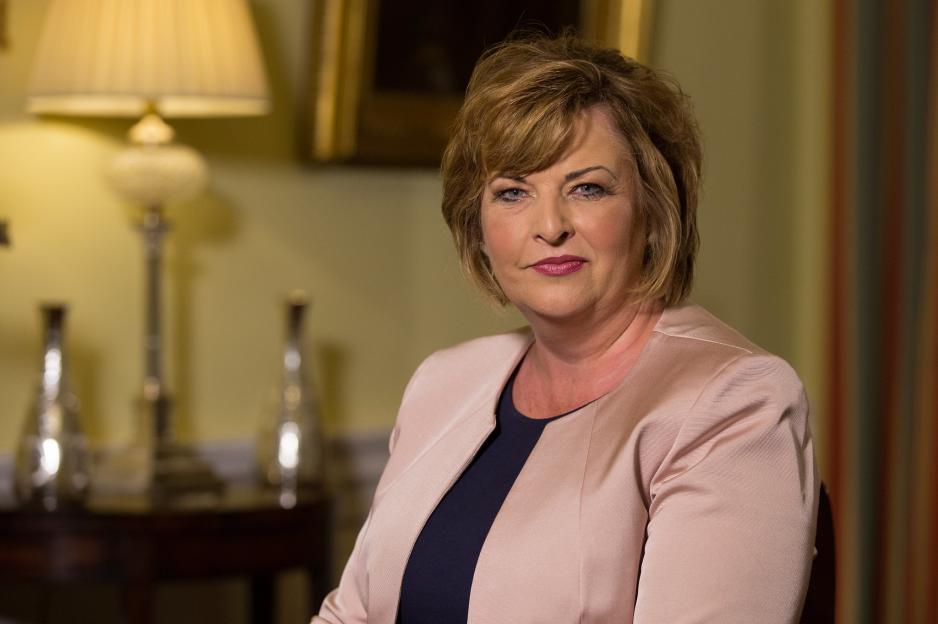Scotland Wants to Become the European Gateway to the Arctic

Scotland wants to connect more closely to the Arctic in both trade, education and culture, according to the new Arctic policy framework launched by the Cabinet Secretary for Culture, Tourism and External Affairs, Fiona Hyslop, on Monday. Photo: The Scottish Government
Scotland is promoting itself as "a European gateway to the Arctic" in a new political framework presented on Monday. In the document, the Scottish Government promises an even closer cooperation with its Arctic neighbours.
On Monday, Fiona Hyslop, Cabinet Secretary for Culture, Tourism and External Affairs, presented the new policy framework, called Arctic Connections: Scotland's Arctic policy framework.
The policy is an attempt to increase educational, cultural, tourism and energy links between Scotland and the Arctic.
In the document, the Scottish Government promises an even closer cooperation with its Arctic neighbors.
For example, through a collaboration with VisitScotland to formulate policies that promote sustainable tourism. And initiatives such as XPoNorth, which will encourage joint cultural projects between Scotland and other Arctic countries.
A new fund will also be created to develop new opportunities for international cooperation with Nordic countries in the Arctic and encourage Scottish universities to work even more closely with the University of the Arctic (UArctic).
Strengthened and developed
Launching the policy, Hyslop emphasized the "valued relationship" Scotland already has with the Arctic, and presented a framework that aims to shed a light on the examples of already established collaboration platforms as well as how they can be strengthened and further developed into the future.
"Scotland is among the Arctic region’s closest neighbours – we share many features and outlooks and have long looked to each other for inspiration, solutions and ideas"
“Our commitment to the region is clear and I am determined that Scotland remains an active partner in facing both the challenges and opportunities our ever-changing world presents.”
Looking north due to Brexit
Arctic countries are already major trading partners for Scotland and together accounted for almost 30 per cent of foreign exports in 2017, which is one reason why Scotland is now formalizing its Arctic involvement.
Another reason is Brexit, which creates great uncertainty both inside and outside the UK. The Brexit process in the UK has met strong opposition in Scotland. The referendum showed a strong support for "remain" in all Scottish electoral regions. Even if the final outcome of Brexit is not clear at the moment, establishing stronger ties towards the North, especially the Nordic countries and the North Atlantic region, can be seen as a strategy to open up other doors.

Fiona Hyslop, Cabinet Secretary for Culture, Tourism and External Affairs. Photo by: The Scottish Government
Speaking at the Orkney Research and Innovation Campus in Stromness Monday, Ms Hyslop underlined that Scotland will remain an outward-looking European nation "committed to positive relationships with both our European neighbours and those further afield, despite the uncertainty surrounding the UK’s exit from the EU."
“Scottish-Arctic partnerships have intensified in recent years and the launch of Arctic Connections creates opportunities to take forward key environmental and climate change work and strengthen trade and investment links." she added.
Closer ties between ports
The policy document Arctic Connections also emphasizes that ports are central to both Arctic and near-Arctic ecosystems:
"Ports are key parts of the Arctic and near-Arctic regions' ecosystems. Collaboration between Scottish harbours and their Arctic counterparts is already underway. The High North Atlantic Business Alliance (HiNABA) network, for instance, consists of ports and economic development organisations in the North Atlantic, including the north of Norway, Iceland, Greenland, the Faroe Islands, Maine, Atlantic Canada and Scotland. The group seeks to increase sustainable trade and investment and explore opportunities for wider business to business cooperation."
Also included in the policy is a statement that that Scotland will work for a sustainable and peaceful Arctic, showing support for initiatives that have inclusion, equality and dialogue at its core, and that reflect the views of those living in the region.
Scotland also commits itself to working with partners working to promote and protect indigenous peoples and other minorities, "with the respect that all languages have their own specific needs."

